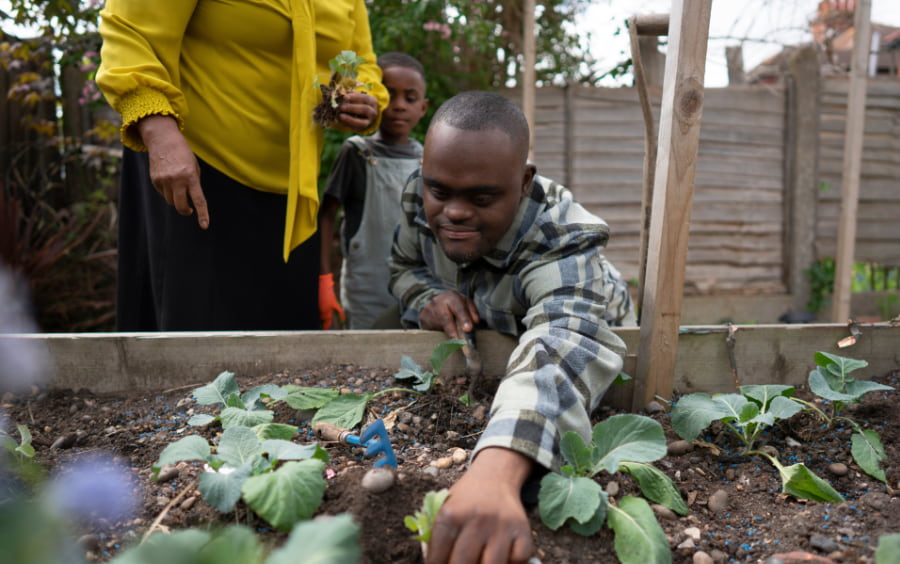Urban growing spaces are rooted in decades of community resistance against disinvestment and structural oppression. Faced with growing racial and economic inequality, urban farms and gardens advocate for an equitable food system as a means of promoting community health. The work they do is not just a response to the structural oppression these communities face but continuing a legacy of local growers in Pennsylvania.

Urban growing spaces are an effective strategy for combating health disparities by mitigating institutional barriers to disease prevention such as gaps in access to fresh produce, green spaces, and safe community gatherings. But for the food sovereignty movement to succeed, it must be inclusive to everyone regardless of their accessibility needs.
Current Project
Growing Together: Promoting Universal Design in Urban Growing Spaces 2023
Currently, there are not enough resources addressing accessibility of urban growing spaces for people experiencing the full spectrum of disability, particularly for those with cognitive, sensory, and psychiatric disabilities. To address this issue, we are working with a team of urban gardeners and disability advocates to create an accessibility toolkit.
Using the principles of universal design, the toolkit will give suggestions on how to design and take care of urban gardens so everyone can use them regardless of their access needs. It will include recommendations for things like wheelchair-friendly paths and raised garden beds. But it won't just be about physical accessibility. It will also have ideas for cognitive and sensory accommodations, like using story narratives and making signs easy to understand.
This project is funded by the Pennsylvania Developmental Disabilities Council.

